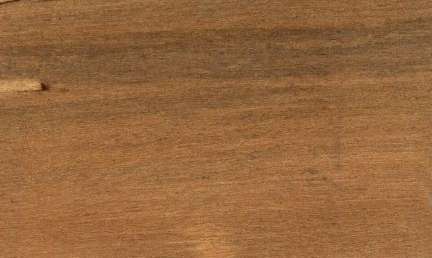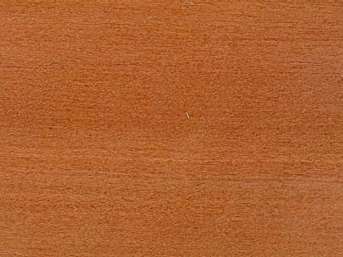 
Nzingu (Mitragyna stipulosa)
Family: Rubiaceae
Common names: Abura, Afop zam, African linden, Agidilif, Akpakosso, Am-bop, Ba, Bahia, Baya, Beiya, Beya, Bo, Boei, Boh, Bopi-le, Bulokossa, Burokossa, Dong, Eba, Ebar, Eben, Elilom, Eti-ayip, Ewe, False opepe, Idabakoror, Iluku, Kechi lebet, Kofo, Kpoo, Kpowo, Kwo-kwo, Louambo, M'boy, Maloucou, Malucu, Maluku, Mboi, Mboroagalaga, Moukonia malamba, Muho, Munga, Munyamaizi, Mvuku, Nzingu, Obi, Obol, Obul, Ogouwa, Ohombe, Oo, Ovbevbe, Poboi, Pope, Poplar, Popo, Popoe, Powo, Sofo, Songwa, Subaha, Subaya, Subosema, Supuya, Tileul d'afrique, Ubolu-mili, Ubura, Uburn, Ugbodokossa, Uwen, Voukou, Vuku, wewoko, Wowovoko, Ya-ya, Yar-yar, Yowi
Distributed in: Angola, Benin, Burkina Faso, Cameroon, Central African Republic, Chad, Congo, Equatorial Guinea, Gabon, Ghana, Guinea, Ivory Coast, Liberia, Mali, Niger, Nigeria, Senegal, Sierra Leone, Sudan, Togo, Uganda, Zaire, Zambia (Africa)
Distribution overview: This species occurs from Senegal to Sudan, Zambia and Angola in Africa, and is usually found in swampy places in forest outliers of inland areas
Common uses: Balusters, Boat building (general), Boxes and crates, Brush backs & handles, Building construction, Building materials, Cabinetmaking, Canoes, Carvings, Chairs, Chests, Concealed parts (Furniture), Construction, Cooperages, Core Stock, Desks, Dining-room furniture, Domestic flooring, Dowell pins, Dowells, Drawer sides, Fine furniture, Floor lamps, Flooring, Flooring: industrial heavy traffic, Furniture , Furniture components, Furniture squares or stock, Furniture, Hatracks, Interior construction, Interior trim, Joinery, Kitchen cabinets, Ladders , Light construction, Living-room suites, Matches, Millwork, Moldings, Musical instruments , Musical instruments, Musical instruments: percussion, Oars, Office furniture, Paneling, Parquet flooring, Particleboard, Plywood, Posts, Pulp/Paper products, Pulpwood, Radio - stereo - TV cabinets, Rustic furniture, Shipbuilding, Stairworks, Stools, Tool handles, Turnery, Vats, Vehicle parts, Veneer: decorative, Violin bows
Environment profile: Data source is World Conservation Monitoring Center
Tree size: Trunk diameter is 100-150 cm
Colors: the heart isYellow, Yellow to golden-yellow to orangeand the sapwoodWhite to yellow, Yellow.The grain isWeak figure, the textureVery even and the lusterMedium
Natural durability: Susceptible to marine borer attack, Very little natural resistance
Odor: No specific smell or taste
LightInduced Color Change: Darker
Kiln Schedules: UK=K US=T13C4S/T11D3S
Drying Defects: Slight twist/warp, Splitting
Ease of Drying: Fairly Easy
Tree Identification: Bole/stem form is straight
Blunting Effect: Small effect
Boring: Easy
Carving: Very good results
Cutting Resistance: Easy to saw
Gluing: Glues well
Mortising: good
Moulding: Good moulding properties
Movement in Service: Good moulding properties
Nailing: Easy to nail, Good nailing properties
Planing: Planes well, to a good finish
Resistance to Impregnation: Sapwood is permeable
Response to hand tools: Variable qualities
Routing recessing: Routing yields good results
Sanding: Good sanding finish
Veneering qualities: Easy to cut, No drying degrade. Dries flat without splitting
Steam bending: Very poor
Screwing: Easy to screw
; Turning: Good results
Painting: Good; Polishing: Very Good to Excellent; Staining: Good staining properties;
- Numerical data Metric
- Numerical data English
- Strength properties
- References
 |
 |
 |
 |
| Item |
Green |
Dry |
Metric |
| Specific Gravity |
|
0,53 |
|
| Density |
|
560 |
kg/m3 |
| Bending Strength |
554 |
860 |
kg/cm2 |
| Crushing Strength |
247 |
410 |
kg/cm2 |
| Hardness |
|
371 |
kg |
| Impact Strength |
63 |
71 |
cm |
| Shearing Strength |
|
155 |
kg/cm2 |
| Stiffness |
83 |
103 |
1000 kg/cm2 |
| Tangential Shrinkage |
|
|
% |
| Radial Shrinkage |
3 |
|
% |
| Weight |
560 |
544 |
kg/m3 |
| Maximum Load |
0,56 |
0,84 |
cm-kg/cm3 |
| Toughness |
|
|
cm-kg |
| Static Bending |
|
|
kg/cm2 |
|
 |  |  |  | | Item | Green | Dry | English | | Bending Strength | 7884 | 12245 | psi | | Density | | 35 | lbs/ft3 | | Hardness | | 820 | lbs | | Impact Strength | 25 | 28 | inches | | Maximum Crushing Strength | 3524 | 5837 | psi | | Shearing Strength | | 2205 | psi | | Stiffness | 1192 | 1477 | 1000 psi | | Work to Maximum Load | 8 | 12 | inch-lbs/in3 | | Specific Gravity | | 0.53 | | | Weight | 35 | 34 | lbs/ft3 | | Radial Shrinkage | 3 | | % | | Tangential Shrinkage | 8 | | % | |
Hardness (side grain) = soft
Density (dry weight) = 31-37 lbs/cu. ft.
Modulus of Elasticity (stiffness) = very low
Max. crushing strength = medium
Max. crushing strength = low
Density (dry weight) = 38-45 lbs/cu. ft.
Bending strength (MOR) = medium
Shrinkage, Tangential = large
Bending strength (MOR) = low
Shrinkage, Tangential = very small
Shrinkage, Radial = very small
Shrinkage, Radial = small
Toughness-Hammer drop (Impact Strength) = low
Shrinkage, Tangential = fairly large
Shrinkage, Radial = moderate
Shearing strength (parallel to grain) = medium
Hardness (side grain) = very soft
Strength properties vary with density
Shrinkage, Tangential = small
Shrinkage, Radial = fairly large
Resists denting and marring
Modulus of Elasticity (stiffness) = high
Density (dry weight) = 46-52 lbs/cu. ft.
Logs are good floaters.
Arkwright, P.,1955,Know your Timbers No.15 Abura,Woodworking Industry,12(3, p177Bolza, E., Keating, W.G.,1972,African Timbers - the Properties, Uses and Characteristics of 700 Species,C.S.I.R.O. Div. of Building ResearchBolza, E.,1976,Timber and Health,Div. Building Res. C.S.I.R.O. AustraliaBond, C.W.,1950,Colonial Timbers,Sir Issac Pitman & Sons Ltd. LondonChalk, L.,1933,Twenty West African Timber Trees,Forest Trees and Timbers of the British Empire,Part 2Cooper, G.P., Record, S.J.,1931,The Evergreen Forests of Liberia,Yale School Forestry Bulletin,31,pp1-153Eggeling, W.J.,1940,Indigenous Trees of Uganda,Govt. Printer Entebbe UgandaErfurth, T., Rusche, H.,1976,The Marketing of Tropical Wood A. Wood Species from African Moist Forests,F.A.O. Forestry DepartmentFouarge, J.,1950,Appropriation de Bois Congolais aux Besoins de la Metropole,I.N.E.A.C. Belgium Serie Technique,No.38Fouarge, J.,1953,Bois du Congo,I.N.E.A.C.France - C.T.F.T./C.T.B.,1982,Guide pour le Choix des Essences Deroulables-pour la fabrication du,contreplaque,C.T.F.T./C.T.B. FranceFrance - C.T.F.T.,1961,Resultats des Observations et des Essais effectues au CTFT sur Abura,C.T.F.T. Information technique,No.109France - Comite Nacional des Bois Coloniaux,1931,Etude Physique et Mecanique des Bois Coloniaux,Assoc. Colonies-Sciences & Comite National des Bios Coloniaux, Paris,,FranceGhana - Timber Marketing Board,1969,Ghana Hardwoods,Timber Marketing BoardGrant, D.K.S.,1934,Some Local Timbers,Tanzania Forest DepartmentGutierrez Oliva, A., Plaza Pulgar, F.,1967,Caracteristicas fisico-mecanicas de las maderas Espanolas. (Physical and,mechanical properties of Spanish timbers.,Min.Agric./Dir.Gen Montes/Instituto Forestral de Investigaciones,y,Experiencias, Madrid pp102Hedin, L.,1930,Etude sur la Foret et les Bois du Cameroun,Haut-Commissaire de la CamerounHoward, A.L.,1948,A Manual of Timbers of the World.,Macmillan & Co. Ltd. London 3rd ed.Irvine, F.R.,1961,Woody Plants of Ghana,O.U.P. LondonKeay, R.W.J.1989. Trees of Nigeria.Revised Version of Nigerian Trees. Clarendon Press, Oxford.Keay, R.W.J.,1964,Nigerian Trees Vol.2,Nigeria Federal Department of Forest Research, IbadanKennedy, J.D.,1936,Forest Flora of Southern Nigeria,Government Printer LagosKinloch, D., Miller, W.A.,1949,Gold Coast Timbers,Govt. Printer Gold CoastLavers, G. M.1966.The Strength Properties of Timbers.Forest Products Research Bulletin, No. 50.Ministry of Technology, Her Majesty's Stationery Office, London.Lincoln, W.A. 1986. World Woods in Color. Linden Publishing Co. Inc., Fresno, California.Pieters, A.,1977,Essences Forestieres du Zaire,R.U.G. Gent BelguimSallenave, P.,1955,Proprietes Phyiques et Mecaniques des Bois Tropicaux de l'Union Francaise,C.T.F.TSavill, P.S., Fox, J.E.D.,1967,Trees of Sierra LeoneScott, M.H.,1950,Notes on the more Important African Timbers Imported into the Union with,Special Ref. to Port. E.A. Species,Journal of the South African Forestry Association,No.19,pp18-62,[South,African Forestry Journal]Spalt, H.A., Stern, W.L.,1959,Survey of Africa Woods 4,Tropical Woods 17(110) pp42-115Tack, C.H.,1969,Uganda Timbers,Govt. Printer UgandaTimber Development Association,1948,Some New Timbers and Their Uses No. 34,Timber Development Association Limited, London [TRADA]Uganda Forest Department,1954,Abura (Mitragyna stipulosa and Mitragyna rubrostipulata,Uganda Forest Div. Util. Sec. Timber Leaflet,No.6Uganda Forest Department,1954,The Mechanical Properties of some Ugandan Timbers,Uganda Forest Department Timber Leaflet,No.1Uganda Forest Department,1969,The Shrinkage of Some Ugandan Timbers,Uganda Forestry Department Timber Leaflet,No.47Unwin, A.H.,1920,West African Forests and Forestry,T. Fisher Unwin Ltd. LondonWhite, F.,1962,Forest Flora of Northern Rhodesia,O.U.P. LondonWood, B., Calnan, D.,1976,Toxic Woods,British Journal of Dermat 94 Suppl. 13
|









